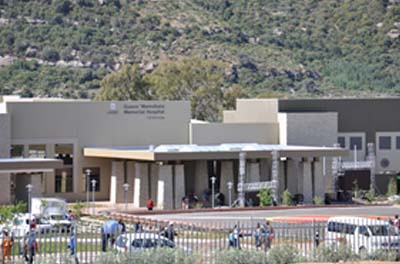Improving Delivery of Health Services in African Countries

Key Contact
Miriam Schneidman
Start Date
End Date
Funding Amount
$ 49,500
Knowledge-providing Countries
Knowledge-receiving Countries
Summary
Health officials across the globe are increasingly interested in improving the quality of health care and its value for money, and consider Public-Private Partnerships (PPPs) as one way to achieve these goals. In 2012, senior staff from the International Finance Corporation (IFC) and the World Bank’s Africa Unit organized an exchange in which officials from Benin, Nigeria, Uganda, Mauritius, and Burkina Faso learned from the experiences of Lesotho in adopting a PPP scheme at its national referral hospital. Participants also discussed ways to harness the private sector to increase access to affordable health care. The exchange included a series of video conferences and a visit to Lesotho financed by the IFC and the South-South Facility.
A joint Project Team of IFC and Bank staff initially organized six videoconferences on diverse topics, such as models and policy frameworks for PPPs. Twenty-five high-level officials from the Ministries of Health and the private sector then visited Lesotho to discuss its innovative PPP scheme, share experiences with PPPs in their own countries, and learn how to access technical support from the IFC and the Bank. Delegates visited Lesotho’s Queen Mamohato Memorial Hospital and three filter clinics, which function as an integrated network. They learned firsthand about the challenges of negotiating and contracting with a private operator to construct and operate this publicly-owned national referral hospital, and refurbish and upgrade clinics, to deliver a generous package of high-quality clinical services at affordable costs.
By investigating Lesotho’s experiences and learning about those of other countries, participants enhanced their capacity to design and implement PPPs. They also identified key lessons, such as the importance of due diligence, high-level buy-in, careful prioritization of covered services, and monitoring of PPPs. Participants strengthened their capacity to mobilize political support for engaging the private sector and to tap international expertise and donor resources.
Delegates praised the exchange for bolstering their commitment to PPPs and helping them move from concept to implementation. One delegate said that the Lesotho Hospital was on the right track and he wanted his country to go in the same direction. Another noted that he would “import from Lesotho the rich experience and ensure that the knowledge . . . will not only [be a] blueprint, but will be implemented.”
Participants planned to apply what they learned to develop and implement health PPPs in their countries, and several began work with the IFC and the World Bank in this effort.
Beneficiaries / Participants
To expand access to quality healthcare and increase its value for money, Ministries of Health across the globe increasingly seek to implement Public Private Partnerships (PPPs). Health officials and other stakeholders realize that PPPs can deliver high-quality health care at costs affordable to both patients and governments. These partnerships can also increase provider accountability, stakeholder involvement, and patient satisfaction.
Staff from the IFC and the World Bank’s Africa Unit tapped a growing body of knowledge on how to design and implement PPPs to support an exchange in which officials from Benin, Burkina Faso, Mauritius, Nigeria, and Uganda learned from Lesotho’s experience. Lesotho had launched a unique PPP to construct and operate a national referral hospital and filter clinics, with a view to delivering high-quality, affordable clinical services. The exchange aimed to provide participants with actionable information and resource materials to help them design and launch PPPs in their own countries. Organizers developed a client-oriented program of presentations addressing priority issues. While focused mainly on Lesotho’s experience, the exchange fostered knowledge sharing across all countries.

 China
China Colombia
Colombia Denmark
Denmark India
India Indonesia
Indonesia Mexico
Mexico Russian Federation
Russian Federation Spain
Spain United Kingdom
United Kingdom